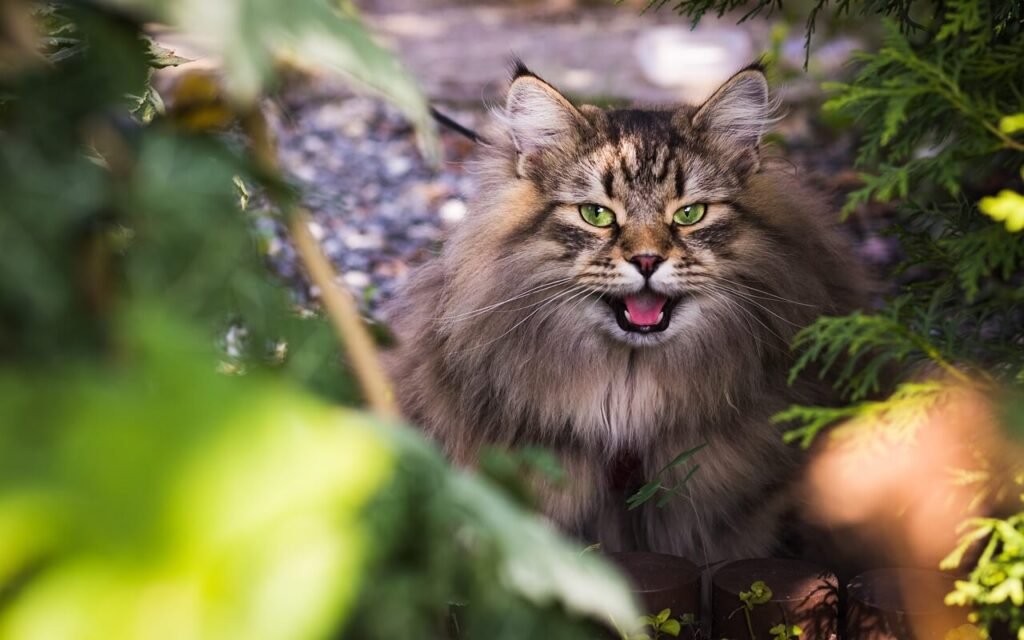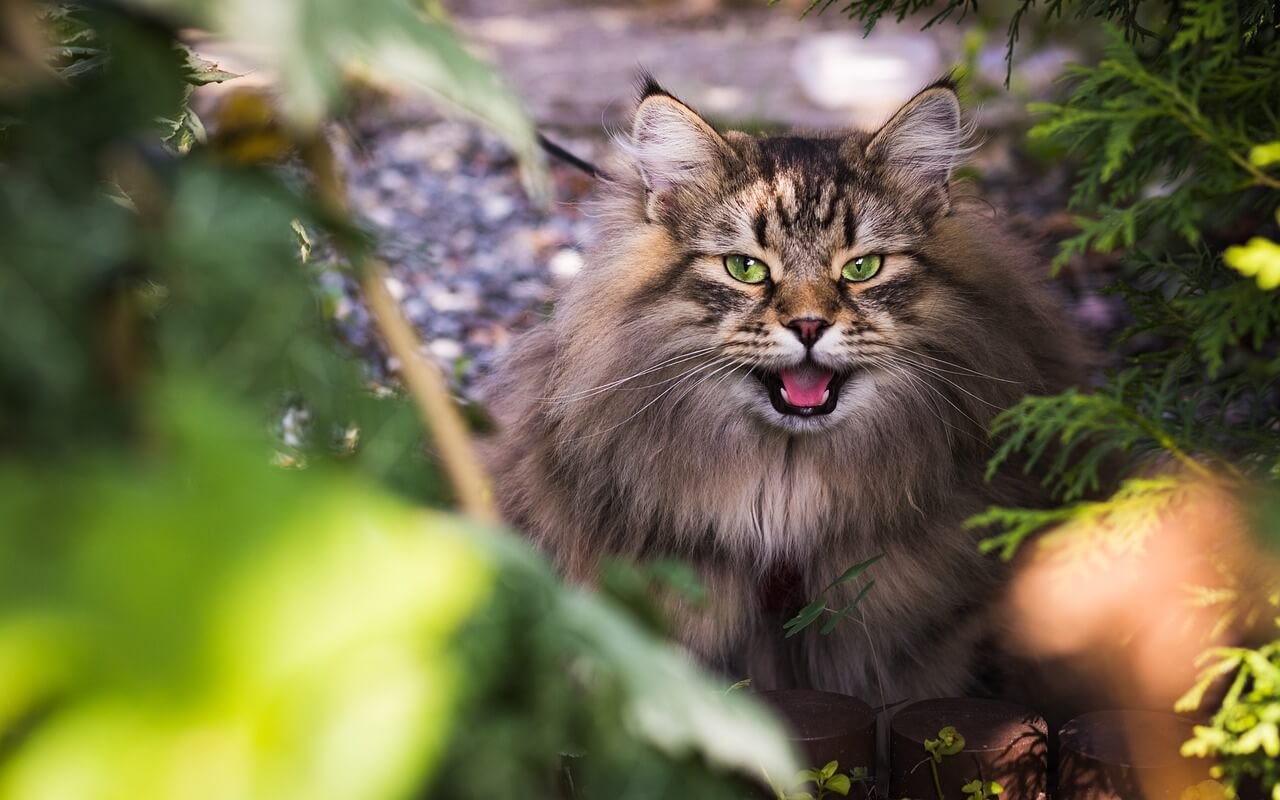Choosing the Right Cat Food for Kidney Disease: A Guide to Keeping Your Feline Healthy
Kidney disease is a common yet serious health issue in cats, especially as they age. While it cannot always be cured, proper nutrition plays a crucial role in managing the condition and improving your cat’s quality of life. Finding the right cat food for kidney disease can seem overwhelming, but understanding the basics can make the process much easier. In this guide, we’ll explore everything you need to know about feeding your cat with kidney issues, from dietary requirements to practical tips for making the transition smoother.
What Should You Look for in Cat Food for Kidney Disease?
When selecting food for a cat with kidney disease, it’s essential to focus on ingredients and nutrients that support kidney function while minimizing strain. Here are the key factors to consider:
Low Phosphorus Levels :
High phosphorus can worsen kidney damage, so look for foods specifically formulated to be low in this mineral.Moderate Protein Content :
While protein is vital, excessive amounts can overwork the kidneys. Opt for high-quality, easily digestible proteins.Controlled Sodium Levels :
Too much sodium can increase blood pressure, putting additional stress on the kidneys.High-Quality Ingredients :
Premium ingredients ensure better nutrient absorption and reduce the risk of further complications.Hydration Support :
Wet or moisture-rich foods help maintain hydration, which is critical for cats with kidney issues.
By prioritizing these dietary elements, you can help slow the progression of kidney disease and keep your cat comfortable. Always consult your veterinarian before making significant changes to your cat’s diet.
Exploring the Best Food Options for Cats with Kidney Disease
There are several types of cat food available that cater to the specific needs of cats with kidney disease. Each type has its own benefits and considerations, depending on your cat’s preferences and condition.
Prescription Diets :
Specially formulated by veterinarians, these diets are designed to meet the unique nutritional needs of cats with kidney issues.Wet/Canned Food :
High in moisture content, wet food helps keep your cat hydrated and supports kidney function.Homemade Diets :
Custom meals allow you to control ingredients, but they require veterinary supervision to ensure balanced nutrition.Low-Phosphorus Treats :
Snacks specifically made for kidney health can complement your cat’s main diet without adding harmful nutrients.Hydration Boosters :
Broth or water additives can encourage your cat to drink more, supporting overall kidney health.
With so many options available, finding the right combination for your cat is achievable. Work closely with your vet to tailor a plan that suits your pet’s needs.
Check this guide 👉How Long Can a Cat Live with Kidney Disease? Best 7 Tips!
Check this guide 👉Understanding Heart Disease in Cats: Best 7 Health Tips!
Check this guide 👉Top 4 Best Sensitive Cat Foods for Ultimate Relief!

Benefits of Specialized Cat Food | Tips for Transitioning to New Food |
|---|---|
Reduces phosphorus levels in the body | Mix small amounts of new food with the old diet gradually |
Supports hydration and kidney function | Monitor for signs of digestive upset during the transition |
Provides balanced nutrition for kidney health | Offer praise and rewards to encourage acceptance |
Minimizes strain on compromised kidneys | Be patient; transitions can take up to 1–2 weeks |
Improves overall quality of life | Consult your vet if your cat refuses to eat the new food |
How to Know If Your Cat’s New Diet Is Helping
Transitioning to a kidney-friendly diet can make a noticeable difference in your cat’s health. Here are some positive signs that indicate the diet is working:
Increased Energy Levels :
Cats with improved kidney function often feel more energetic and playful.Better Hydration :
Properly hydrated cats will have softer, healthier skin and a shinier coat.Reduced Vomiting or Nausea :
A well-balanced diet can alleviate gastrointestinal symptoms associated with kidney disease.Improved Appetite :
Cats may begin eating more consistently if the food is palatable and easy to digest.Stable Weight :
Maintaining or regaining weight is a good indicator of effective nutrition.
These signs suggest that your cat is responding well to their new diet. However, regular check-ups with your vet remain essential to monitor progress.
Pitfalls to Watch Out for When Managing Your Cat’s Diet
Feeding a cat with kidney disease requires careful attention to detail. Avoiding these common mistakes can help ensure your cat stays healthy and comfortable.
Switching Food Too Quickly :
Abrupt changes can upset your cat’s stomach and lead to refusal to eat.Ignoring Hydration Needs :
Neglecting water intake can exacerbate kidney problems and worsen symptoms.Overlooking Nutritional Balance :
Homemade diets lacking proper formulation can lead to deficiencies or imbalances.Feeding High-Phosphorus Foods :
Even small amounts of inappropriate treats can harm your cat’s kidneys over time.Skipping Vet Consultations :
Regular check-ups are necessary to adjust the diet based on your cat’s changing needs.
Avoiding these errors ensures your cat receives the best care possible. Always prioritize professional guidance when managing their diet.
Boosting Your Cat’s Diet with Kidney-Friendly Nutrients
In addition to focusing on low phosphorus and controlled protein levels, certain nutrients can further support kidney health. Including these in your cat’s diet can provide added benefits during their recovery journey.
Omega-3 Fatty Acids :
These anti-inflammatory fats help reduce kidney inflammation and improve function.Antioxidants :
Vitamins C and E combat oxidative stress, protecting kidney cells from damage.B Vitamins :
Essential for metabolism and energy production, B vitamins are often depleted in cats with kidney disease.Potassium :
Cats with kidney issues may lose potassium, so supplements or foods rich in this mineral can help maintain balance.Taurine :
This amino acid supports heart and eye health, which is especially important for cats with compromised kidneys.
Incorporating these nutrients into your cat’s diet can enhance their overall health. Always consult your vet before adding supplements to ensure they’re appropriate for your pet.
Recognizing When Your Cat Needs Immediate Attention
Even with the best diet and care, kidney disease can progress. Being vigilant about warning signs can help you seek timely veterinary intervention and prevent complications.
Increased Thirst and Urination :
A sudden spike in water consumption or urination may indicate worsening kidney function.Weight Loss :
Unexplained weight loss despite a good appetite can signal underlying issues.Lethargy or Weakness :
Cats that seem unusually tired or uninterested in activities may be struggling with advanced symptoms.Bad Breath (Uremic Odor) :
A distinct ammonia-like smell on your cat’s breath can indicate toxin buildup in the body.Vomiting or Diarrhea :
Frequent digestive upset may point to an inability to process food properly.
If you notice any of these signs, contact your veterinarian immediately. Early intervention can make a significant difference in managing kidney disease.
Helping Your Cat Accept Their New Kidney-Friendly Diet
Some cats can be notoriously picky, especially when transitioning to a new type of food. Here are some strategies to encourage your feline friend to embrace their kidney-friendly diet.
Warm the Food Slightly :
Heating wet food to room temperature can enhance its aroma and make it more appealing.Experiment with Textures :
Try pâté, shredded, or gravy-based options to find what your cat prefers.Use Toppers or Broth :
Adding a small amount of low-sodium broth or a sprinkle of Parmesan cheese can entice hesitant eaters.Serve Smaller Portions More Frequently :
Some cats prefer eating smaller meals throughout the day rather than one large serving.Create a Stress-Free Feeding Environment :
Ensure your cat feels safe and comfortable while eating by placing their bowl in a quiet area.
Patience and creativity are key when dealing with picky eaters. With time and effort, most cats will adapt to their new diet, supporting their long-term health.
Frequently Asked Questions About Cat Food for Kidney Disease
Can I feed my cat regular food if they have kidney disease?
No, regular food often contains high levels of phosphorus and sodium, which can worsen kidney issues.
How long does it take to see improvements with a kidney-friendly diet?
Improvements may take weeks to months, depending on the severity of the condition.
Are homemade diets safe for cats with kidney disease?
Only if formulated under veterinary supervision to ensure proper nutrition.
What should I do if my cat refuses to eat the new food?
Try mixing it with their old food gradually or ask your vet for alternative options.
Can wet food alone meet my cat’s nutritional needs?
Yes, but it must be specifically designed for kidney health to provide balanced nutrition.
Final Thoughts: Nourishing Your Cat Through Kidney Disease
Finding the right cat food for kidney disease is a critical step in managing this challenging condition. By focusing on low-phosphorus, high-quality, and hydrating options, you can help ease the strain on your cat’s kidneys and improve their overall well-being. Remember, every cat is unique, so work closely with your veterinarian to tailor a diet plan that meets their specific needs. With patience, care, and the right nutrition, you can give your feline companion the best chance at a happy, healthy life despite their diagnosis.
Do Cats Have Taste Buds? Best 7 Expert Tips! – Discover how cats experience flavors and why their taste is so unique.
Do Dogs Have Taste Buds? Best 7 Expert Tips! – Discover how dogs experience taste, their preferences, and what it means for their diet and health.
Can Cats Taste Sweet? Best 7 Expert Tips! – Discover why cats can’t taste sweetness, how it affects their diet, and tips to keep them healthy and happy.
Can Dogs Taste Sweet? Best 7 Expert Tips! – Discover how dogs perceive sweetness, which foods are safe, and tips to manage their sweet cravings responsibly.





